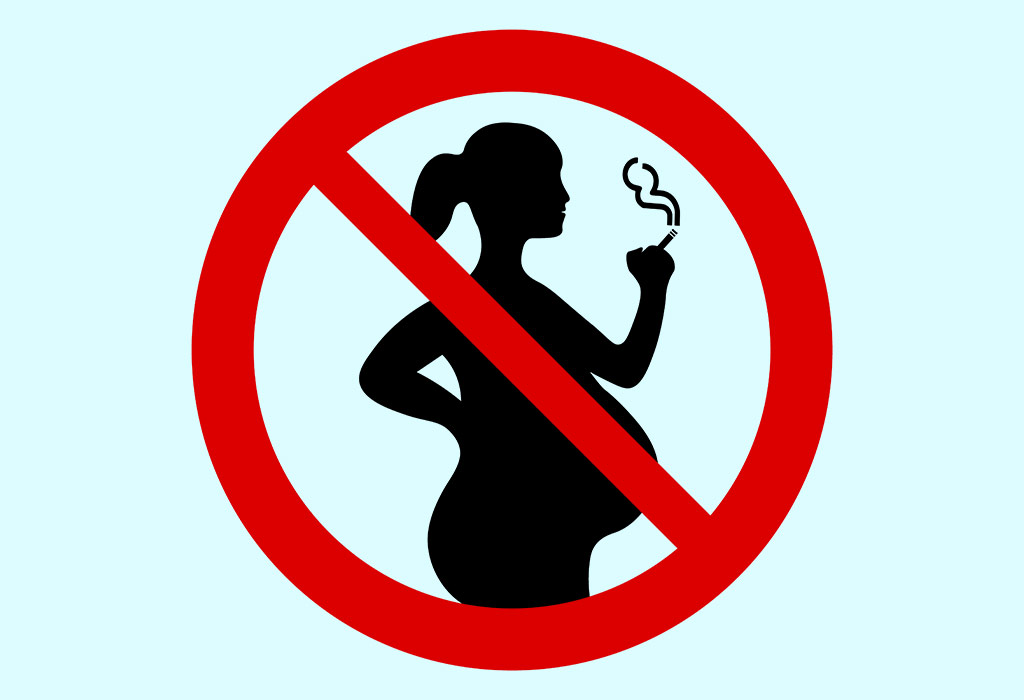In this Article
Congratulations on coming this far because week 40 means you and your baby are officially about to meet each other really soon! Many pregnant women take precautionary steps and prepare for the arrival of the baby by reading up on various pregnancy related material. We’ve got you covered too!
Your Baby’s Growth During Pregnancy – Week 40
Your baby is making remarkable progress as she develops in the womb. Some of these developments include:

- Layering up on fat: 15% of your baby’s body will be made up of fat that helps the little one in regulating her body temperature.
- Nails and hair continue to grow: At 40 weeks, your baby’s nails and hair are still growing and will be more defined.
- Lung adaptability: The lungs are almost developed for breathing the air outside.
- Stocking up on antibodies: The placenta still gives the baby all the antibodies that she needs to ward off infections for the initial 6 months of her life.
- Eyesight develops: Baby’s eyesight will be blurry and can focus only on objects that are an inch away.
- Apart from these developments, there are other significant changes in her body that can be observed. For example, to ensure smooth passage for your baby through the birth canal, the bones in the skull will not be completely fused.
Also, your baby’s body is successfully breaking down bilirubin by moving across the placenta where it gets flushed out with the other waste products. Once the baby is born and the umbilical cord is cut, her body will have to get rid of the bilirubin on its own. This will normally take a few days. Sometimes it gets built up in the baby’s body and hence the baby may contract Jaundice. This can be taken care of by exposing her to light.
What is The Baby Size
40 weeks pregnant baby size would be between 2.7 Kgs to 4 Kgs by weight and will measure between 19 inches to 22 inches long (though a lot of babies who are born smaller or bigger have grown up to be healthy). Your baby will be of the size of a watermelon at this time.
Common Body Changes
Your body changes during pregnancy to accommodate and nurture the growing foetus. It is important to know that it is not necessary that your water will rupture before the onset of labour. In fact, very few women experience this. Even if your membrane ruptures, it will be a slow trickle or leak or even a small gush.
Symptoms of Pregnancy at Week 40
Pregnant women may experience the following symptoms:
1. Leg cramps
The baby at this stage will drop lower in the pelvis, thereby increasing the discomfort in the pelvic region. This is very common at 40 weeks.
2. Insomnia
It is okay if you can’t sleep as anxiety can keep you up at night. You may want to indulge in some relaxing activities like reading a book or writing a journal. Plenty of rest is also advised.
3. Fatigue
Since you can’t sleep properly you are bound to feel tired. So, make sure you have some peace and quiet time to help you relax.
4. Contractions
Those false contractions that you’ve probably been experiencing all this while (Braxton-Hicks) may actually ‘not be so false’ anymore. Time your contractions to analyse how far apart they actually are. In case time difference between two contractions is very less, you may have actually reached an early stage of labour.
What are The Signs of Labor
Even at 40 weeks, there might be no signs of labour. However, you can expect these signs to arrive soon. These include:
- Frequent, Rapid Contractions: Once you start having contractions which make you uncomfortable or keep coming at regular intervals, you must go to the doctor.
- Water Leak/ Break: You can check to see if there is a leak of amniotic fluid. This will mean that the water has broken or ruptured. You can easily distinguish between amniotic fluid from the normal discharge. The flow of amniotic fluid will not stop, unlike a regular discharge.
Inducing Labor at 40 Weeks
There are multiple ways to do this.
1. Membrane Stripping
The doctor will put his or her gloved finger inside the cervix and sweep the membrane. This helps in producing prostaglandins that help to soften the cervix and induce labor. At this time, you may feel intense cramping and a little bit of bleeding. This procedure might be a little uncomfortable.
2. Dilating or Ripening of the Cervix
- The doctor might induce labour with the help of certain medications if the cervix isn’t ready for labour. The synthetic medication called prostaglandins will induce labour and it can be taken orally or inserted into the vagina.
3. Rupturing the Amniotic Sac
The amniotic sac can be ruptured to start labour. This is called amniotomy. Here, the doctor will break or rupture the amniotic sac using a thin plastic hook. This is done only when the head of the baby has moved down or for a partially dilated cervix. For some women, the labor can happen within a few hours of breaking the water. However, it should be kept in mind that this varies for every woman.
4. Pitocin
- These are synthetic hormones that can induce labor or make the contractions stronger.
Belly at 40 Weeks of Pregnancy
Two weeks after the due date, if you are still pregnant then it is officially post-term. 12% to 13% women have a post-term pregnancy. The good news is that the baby must come at some point and the bad news is that it could take another two weeks at most.
40 Weeks Ultrasound
An ultrasound of the baby at this stage will allow the doctors to know how developed the baby’s lungs are. A non-stress test will be done to monitor baby’s movements and see how her heart rate holds up during contractions. If the test results indicate that the baby will do better outside than inside the uterus, then labor can be induced.
What to Eat?
Below is a list of 40th week pregnancy food items a mother can consume during this period.
- Toast: It needs to be kept bland but sustaining enough that it gives plenty of energy without straining the digestive system.
- Pasta: Bland pasta is advisable as it provides a good carb-load for the strenuous exertion that happens during labour.
- Jell-O or Applesauce: These are easy to consume and act as energy boosters.
- Sorbet or Popsicle: This help to keep oneself hydrated and provide jolts of little energy. If they are made up from fruits, then these will provide vitamins as well.

Tips & Care
Below are a few tips that a mother can follow to keep herself comfortable.
Dos
- Stimulating the nipple: Nipple stimulation releases the hormone oxytocin which causes contraction of the uterus. But this must be done only if the doctor approves of it.
- Walks: Walking helps to induce labour by allowing the baby to move further down the birth canal. This also brings down the discomfort that women feel when they are experiencing contractions.
- Spicy food: It is not proved that having spicy food induces labour, but you can try having food that has lots of garlic and cumin to trigger labour.
- Sexual intercourse: This helps to induce labour and at the same time makes your partner and you feel closer to one another.
Dont’s

- Smoking: Even if you don’t smoke, being exposed to second-hand smoking can bring about respiratory disease in the unborn child.
- Caffeine: Apart from aggravating insomnia, coffee has been known to increase the chances of diabetes for the child.
What You Need to Shop
A few things that a mother needs to have in hand before her bundle of joy gets out are:
- Diapers
- Hand sanitizers that are alcohol-free
- Crib mattress protector pads that are waterproof and very soft
- Nipple shield
- Pacifier and bottle wipes
- Breastfeeding salve
Conclusion
With the baby ready to come out anytime now, watch out for all the signs that may point to the start of labour. Also, make adequate arrangements so that when the time comes you can head to the hospital without any difficulty.
Read this article in Arabic: الأسبوع 40 من الحمل









